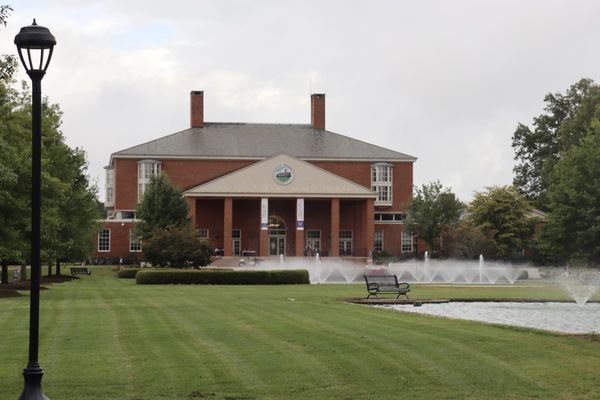On Thursday, Jan. 20, students, faculty, and administration gathered in Johns Hall 101 and on Zoom for a town hall meeting to discuss a recently circulated petition and the dialogue it created. The petition, which was published by the Student Government Association (SGA) on Monday, Jan. 17, received 377 signatures after outlining potential changes to Furman’s COVID-19 virtual attendance policy
Talks for the petition first began among members of the 51st SGA Council after Sophomore Class Representative Meredith Ervin presented her thoughts at the first council meeting this semester. According to Ervin, many of her peers had approached her during the fall semester, over Winter Break, and at the start of this spring semester with their concerns regarding Furman’s updated Virtual Attendance Policy.
Ervin herself noted that professors had not reviewed their attendance policies in the same ways they had her freshman year. It was then she realized, “Furman made an entire policy change and no longer required professors to provide a Zoom option to students.” Ervin found this worrisome and began asking questions like, “What happens if a student gets COVID and they cannot attend class virtually? How can they stay on track academically?” It is Ervin’s belief that questions like these are partially the responsibility of SGA to address, especially given her role as a Class Representative and the number of students who shared these concerns with her personally.
After receiving support from other members of the Council, Ervin decided to write the petition, which can be found here. One of the petition’s main talking points revisits the time and money Furman spent previously to ensure “virtual operation would run smoothly” during COVID-19. It also notes that “allowing students the chance to participate in class virtually, given a just reason for the absence, encourages students to participate if possible and supports their academic success.”
This part of the petition calls one’s attention to the idea that, although we are still in the midst of a pandemic, not every excused absence is medical and that students who miss in-person class for an excused reason should not have to suffer academically as a result. Therefore, keeping a virtual option for excused and/or medical absences, the petition argues, is a solution to the worries that stemmed from the changed virtual attendance policy.
Shortly after the petition circulated, Student Body President Asha Marie sent out an email inviting faculty, staff, and students to join together for a community dialogue discussing the petition and many of the student responses it gathered. Multiple perspectives were shared at the town hall, including those in favor of professors offering a Zoom option, and those opposed to having virtual attendance being offered this semester and in subsequent semesters. Many professors shared personal reasons, such as privacy, as to why they did not wish to offer the virtual option this academic year. Others expressed their concern that students would take advantage of a virtual option and never attend class in person.
Following the town hall, Ervin reflected, “In no way do I think professors should allow Zoom just anytime a student misses a class.” Rather, Ervin wished to clarify her stance that Zoom should only be available in the event of an excused absence or in the event a student must miss class due to COVID-19. Additionally, if a professor does not wish to provide Zoom as an option under these circumstances, Ervin still believes that other methods such as a class recording or detailed notes should be provided in its replacement. “We should be doing something better,” she noted, as opposed to students missing class for an excused reason and not having a way to make up the material. After acknowledging the validity of some professors’ arguments who were opposed to offering Zoom, Ervin noted that professors who feel this way should still talk to their students about their personal reasonings to allow more transparency and understanding in the classroom.
Following the town hall dialogue, Ervin has seen “only positive changes.” Over 40 students have shared with Ervin that their professors have either changed their Zoom policy or addressed their Zoom policy reasoning with their classes since the town hall. Furthermore, following the dialogue many professors thanked those who organized the event because it allowed them to better understand students’ perspectives in a way they were unable to before.
Following the town hall, Student Body President Asha Marie sent an email debriefing the community dialogue to the entire Furman community. Marie expressed her belief that “Through dialogue, both faculty and students were able to come to what felt like middle ground. We agreed that at the root of this issue is a breakdown in communication and a lack of trust that students will be supported as we continue to navigate the pandemic.” Marie applauded the faculty for being vulnerable in sharing their concerns that “included privacy, reputation, and creating classroom environments in which students felt safe to engage fully in difficult conversations with their peers.”
Both Ervin and Marie came away from the experience with shared sentiments: communication between faculty, students, and administration is key, and SGA strives to be a supportive space that works diligently to best represent the interests of students.
